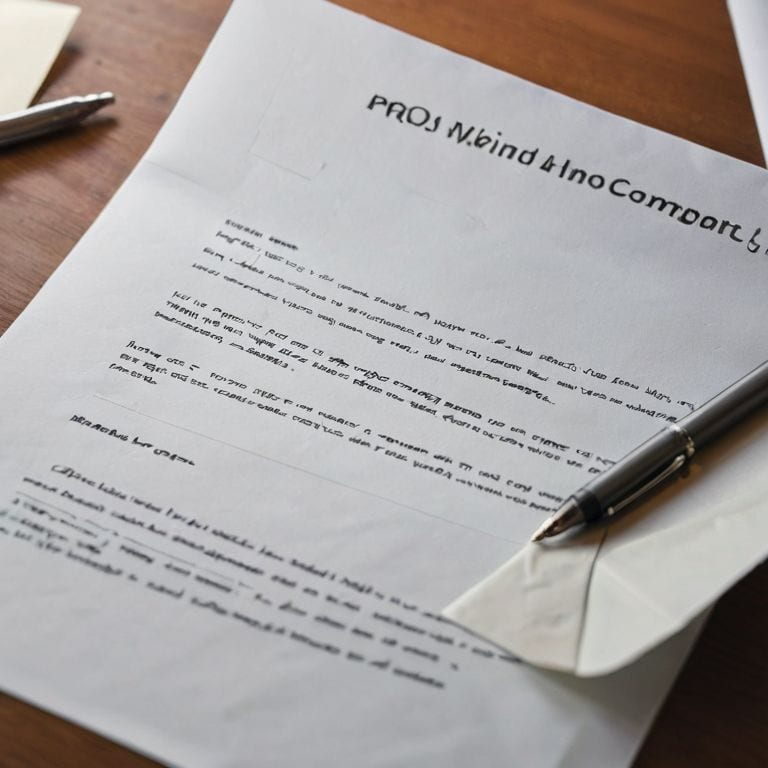I still remember the day I realized that a guide to informational interviews was the secret sauce to cracking the corporate code. As a former senior recruiter for Fortune 500 tech companies, I’ve seen my fair share of resumes and interviews, but it was the informational interviews that always left a lasting impression. There’s a common myth that these interviews are just a formality, a nice-to-have but not a must-have. But let me tell you, that’s just not true. Mastering the art of informational interviews is a game-changer, and I’m here to share my insider knowledge with you.
So, what can you expect to learn from this article? You’ll get the lowdown on how to prepare for informational interviews, how to ask the right questions, and how to follow up in a way that leaves a lasting impression. I’ll share my personal anecdotes, strategic tips, and actionable scripts to help you navigate the process with confidence. By the end of this guide, you’ll be equipped with the skills to leverage informational interviews to get hired, get promoted, or simply get a foot in the door. So, let’s dive in and explore the world of a guide to informational interviews together!
Table of Contents
Guide Overview: What You'll Need

Total Time: 1 hour to 2 hours
Estimated Cost: $0 – $50
Difficulty Level: Easy
Tools Required
- Computer (with internet access)
- Phone (for calls)
- Notebook (for taking notes)
Supplies & Materials
- Business Cards (optional)
- Professional Attire (for in-person interviews)
- List of Questions (prepared ahead of time)
Step-by-Step Instructions
- 1. First, let’s define what an informational interview is: it’s a meeting with someone who works in your desired field or company, where you can ask questions, gain insights, and build connections. To start, make a list of dream companies and ideal roles you’d like to learn more about, and identify potential contacts who can provide valuable information.
- 2. Next, research your targets: look up the company’s website, social media, and news articles to understand their current projects, challenges, and values. This will help you prepare informed questions and show your interest in the company. You can also use LinkedIn to find potential contacts and see if you have any mutual connections.
- 3. Now, it’s time to reach out to your contacts: send a personalized email or message introducing yourself, explaining how you came across their name, and stating the purpose of your request. Be clear about what you’re looking for – information and advice – and not a job offer. Keep your message brief and to the point, and make sure to include a clear call-to-action, such as scheduling a call or meeting.
- 4. Once you’ve secured an informational interview, prepare your questions: make a list of open-ended questions that will encourage your contact to share their experiences and insights. Avoid asking questions that can be easily answered by doing research online, and focus on deeper topics such as company culture, challenges, and opportunities for growth.
- 5. During the interview, take detailed notes: pay attention to your contact’s body language and tone of voice, as these can provide valuable nonverbal cues. Take notes on the key points discussed, and make sure to ask follow-up questions to clarify any doubts or seek more information.
- 6. After the interview, send a thank-you note: this is a crucial step that can make a big difference in building a strong connection with your contact. Send a personalized email or message within 24 hours, thanking your contact for their time and reiterating your interest in the company or field. Make sure to reference specific topics discussed during the interview to show that you were actively listening.
- 7. Finally, follow up and follow through: if your contact offered to introduce you to someone else in their network, or provided you with some actionable advice, make sure to follow up and take action. This will show that you’re serious about your career goals and willing to put in the effort to achieve them. Keep your contact updated on your progress, and don’t be afraid to ask for further guidance if you need it.
Cracking the Code

As you prepare for an informational interview, it’s essential to research the company and understand its culture, values, and current projects. This will help you ask informed questions and show your genuine interest in the organization. I always tell my clients to review the company’s website, social media, and recent news articles to get a sense of their current challenges and initiatives.
When it comes to common informational interview questions, be prepared to talk about your career goals, strengths, and weaknesses. It’s also crucial to have a list of questions ready to ask the interviewer, such as what a typical day looks like in their role or how they navigate challenges in their position. This will not only show your enthusiasm but also give you valuable insights into the company and the role.
After the meeting, follow up with a thank-you note to express your gratitude and reiterate your interest in the company. This is a simple yet effective way to leave a lasting impression and keep the conversation going. By doing so, you’ll be able to build a connection with the interviewer and potentially open doors to new opportunities.
Benefits of Info Interviews
The benefits of informational interviews are numerous, and I’ve seen them firsthand in my years as a recruiter. By speaking with insiders, you gain valuable insights into a company’s culture, values, and expectations. This helps you tailor your application materials and prepare for common interview questions. Plus, you’ll build a network of contacts who can vouch for your skills and interest in the industry. I’ve witnessed candidates go from unknown to top contender simply because they took the time to have a conversation with someone on the inside.
These conversations can also reveal potential red flags or areas for growth, allowing you to make informed decisions about your career path. By leveraging informational interviews, you’ll be better equipped to navigate the hiring process and increase your chances of landing your dream job.
Preparing for Insider Info
To truly crack the code, you need to prepare for the insider information that will come your way. This means doing your homework on the company and the person you’re interviewing. Research their current projects, challenges, and goals. I like to think of it as “pre-game” – you’re setting yourself up for success by understanding the lay of the land. Review the company’s website, social media, and recent news articles to get a sense of their culture and values.
By being prepared, you’ll be able to ask informed and thoughtful questions during the informational interview, which will not only show your interest but also demonstrate your level of investment in the company and role. Trust me, it makes a difference – I’ve seen it time and time again in my years as a recruiter.
Nailing the Info Interview: 5 Insider Tips

- Research the company like you’re about to marry into the family – know their history, values, and current projects to show your genuine interest
- Prepare thoughtful, open-ended questions that showcase your intelligence and curiosity, avoiding yes/no questions like the plague
- Follow up with a personalized thank-you note within 24 hours, referencing specific points from your conversation to demonstrate your attention to detail
- Dress for the job you want, not the job you have – make a great first impression by mirroring the company’s dress code and exuding confidence
- Listen actively and take notes, using the conversation as a chance to learn about the company culture and potential pain points you can address as a future employee
Key Takeaways to Land Your Dream Job
Mastering the art of informational interviews can significantly boost your chances of getting hired or promoted by providing insider knowledge of the company and role
Preparing thoroughly for informational interviews by researching the company and practicing thoughtful questions can make a substantial difference in the outcome
Leveraging the benefits of informational interviews, such as gaining valuable insights and building meaningful connections, can be a game-changer in cracking the code to your dream job
Unlocking Career Secrets
Informational interviews are not just about gathering information, they’re about building relationships, decoding company cultures, and ultimately, cracking the code to your dream job – it’s time to start playing the game with intention and strategy.
Morgan Wells
Conclusion: Unlocking Your Dream Career
As we’ve navigated the world of informational interviews together, I hope you’ve gained a deeper understanding of how to crack the code of your dream job. From preparing for insider info to reaping the numerous benefits of these conversations, it’s clear that mastering the art of informational interviews is a game-changer. By following the steps outlined in this guide, you’ll be well on your way to building a network of valuable contacts, gaining insight into your desired field, and ultimately, increasing your chances of landing your ideal role.
So, as you embark on this journey, remember that playing the game is a learnable skill, and with persistence, strategy, and a willingness to learn, you can get paid what you’re worth. Don’t be afraid to take the first step, reach out to someone in your desired field, and start unlocking the doors to your dream career. With the right mindset and tools, the possibilities are endless, and I have no doubt that you’ll achieve greatness.
Frequently Asked Questions
What are the most effective ways to reach out to potential contacts for an informational interview?
To reach out to potential contacts, I recommend using a combination of LinkedIn messages and personalized emails. Keep your initial message brief and to the point, highlighting how you came across their work and what you hope to discuss. Use a script like: “Hi [Name], I’m [Your Name], a [Your Profession] looking to learn more about [Industry/Field]. Would you be open to a 15-minute call to discuss your experiences and insights?
How can I ensure that I'm asking the right questions during an informational interview to get the most valuable insights?
To get the most valuable insights, prepare questions that dig deeper than just ‘what do you do?’ Ask about challenges, successes, and lessons learned – it’s where the real gold is. I like to use the STAR method: Situation, Task, Action, Result. It helps you craft questions that encourage storytelling and reveal the insider info you’re looking for.
What are the best practices for following up with contacts after an informational interview to maintain a connection and potentially lead to future opportunities?
After an informational interview, I always advise my clients to send a personalized thank-you note within 24 hours, referencing specific conversation points. Then, connect with them on LinkedIn and engage with their posts to keep the conversation going. This shows you value their time and insight, and can help turn a one-time meeting into a lasting connection that might just lead to your next big opportunity.













